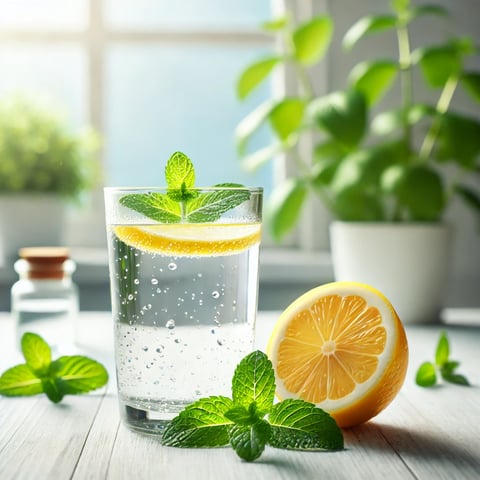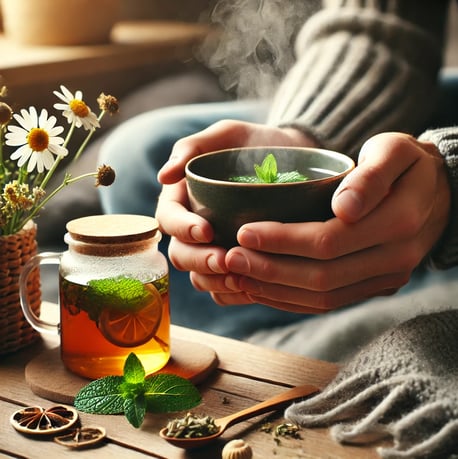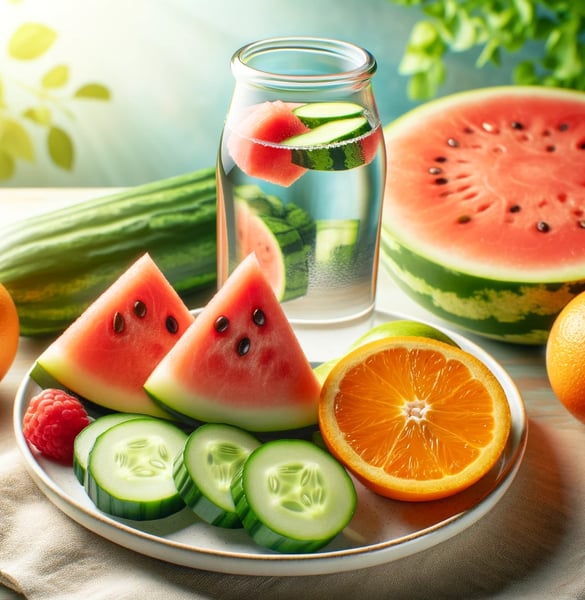How to Stay Hydrated: The Importance of Water for Your Health
11/15/20245 min read
We often hear that drinking water is essential for good health, but do we fully understand why staying hydrated is so important? From supporting bodily functions to boosting energy and improving skin appearance, water plays a crucial role in almost every aspect of our health. In this blog, we’ll explore the many benefits of hydration, signs of dehydration, and simple strategies to make sure you’re getting enough water every day.


The Role of Water in Your Body
Water makes up around 60% of your body weight and is involved in nearly every bodily function. It’s essential for regulating body temperature, carrying nutrients to cells, and eliminating waste products. Our organs, muscles, and tissues all rely on water to function properly, and even mild dehydration can interfere with these processes.
Some key roles of water in the body include:
Temperature Regulation: Water helps regulate body temperature by absorbing and dissipating heat.
Nutrient Transport: Water is the medium through which nutrients travel to cells and waste products are removed.
Joint Lubrication: Proper hydration helps to maintain the lubrication of joints, preventing discomfort and injuries.
Digestion and Absorption: Water aids in digestion by dissolving nutrients and enabling smooth passage of food through the digestive system.
When we don’t get enough water, these essential functions become compromised, leading to fatigue, headaches, digestive issues, and more.
How Much Water Should You Drink?
The amount of water you need can vary depending on several factors, including age, weight, physical activity level, and climate. However, a common guideline is the "8x8 rule"—drinking eight 8-ounce glasses of water a day, which equals about 2 liters, or half a gallon. This is an easy-to-remember goal, but some people may need more or less.
The Institute of Medicine (IOM) recommends the following daily water intake:
Men: About 3.7 liters (125 ounces) from all beverages and foods.
Women: About 2.7 liters (91 ounces) from all beverages and foods.
It’s important to note that water intake doesn’t come solely from drinking water. Many foods, especially fruits and vegetables, contain water and contribute to your daily hydration. For example, watermelon, cucumbers, and oranges are over 90% water, making them excellent choices for staying hydrated.
Signs of Dehydration
Dehydration occurs when your body doesn’t have enough water to perform its functions. Even mild dehydration can cause noticeable symptoms, which might include:
Dry Mouth and Thirst: Your body’s natural way of signaling that it needs more water.
Fatigue: Dehydration can make you feel sluggish or tired.
Headaches: Lack of water can cause tension and headaches.
Dark Yellow Urine: If your urine is darker than usual, it’s a sign that your body is holding onto water.
Dizziness or Confusion: Severe dehydration can affect brain function, leading to dizziness or difficulty concentrating.
Dry Skin: When your skin lacks water, it can become dry and lose its elasticity.
If you experience these symptoms, it’s essential to rehydrate by drinking water, herbal teas, or electrolyte drinks. Severe dehydration requires medical attention, so it’s important to monitor your hydration regularly.
The Benefits of Staying Hydrated
Drinking enough water offers numerous health benefits. Let’s take a look at some of the key advantages of staying hydrated:
1. Boosts Energy Levels
One of the first things people notice when they become dehydrated is an increase in fatigue. Dehydration makes it harder for your heart to pump oxygen to your muscles and organs, leading to feelings of tiredness. By staying hydrated, you can ensure your body has the energy it needs to function optimally throughout the day.
2. Supports Skin Health
Hydrated skin looks more youthful, radiant, and plump. When you’re dehydrated, your skin can look dull and become more prone to dryness, wrinkles, and other skin issues. Drinking plenty of water helps maintain skin elasticity and can reduce the appearance of fine lines.
3. Aids in Digestion
Water is essential for digestion as it helps break down food and absorb nutrients. It also softens stool, preventing constipation. Drinking water before, during, and after meals can improve digestion and keep your digestive system running smoothly.
4. Improves Physical Performance
Hydration is critical for anyone who exercises. During physical activity, you lose water through sweat, and staying hydrated helps maintain stamina and prevent muscle cramps. Whether you're running, lifting weights, or doing yoga, proper hydration can improve your performance and recovery time.
5. Detoxifies the Body
Water helps flush toxins out of the body through urine, sweat, and bowel movements. Drinking enough water supports kidney function and helps prevent kidney stones and urinary tract infections (UTIs).
6. Helps Control Weight
Drinking water can support weight loss efforts in several ways. It can help you feel full, reducing overall calorie intake. Sometimes, our bodies confuse thirst with hunger, leading us to eat more when we actually just need to drink water. Hydrating with water before meals can curb appetite and prevent overeating.


Tips for Staying Hydrated Throughout the Day
Staying hydrated is more than just drinking water when you feel thirsty. Here are some practical tips to help you maintain good hydration levels throughout the day:
Start Your Day with Water: Drink a glass of water as soon as you wake up. It helps kick-start your metabolism and replenishes the fluids lost overnight.
Carry a Water Bottle: Having a reusable water bottle on hand makes it easier to sip water throughout the day. You’ll be more likely to drink water if it’s within reach.
Eat Hydrating Foods: Include water-rich foods in your diet. Fruits like watermelon, strawberries, and oranges, and vegetables like cucumber and celery, are excellent sources of hydration.
Set Hydration Reminders: If you’re prone to forgetting to drink water, set reminders on your phone or use a hydration tracking app to remind you to drink regularly.
Drink Herbal Teas: Herbal teas like chamomile, peppermint, or ginger can also help with hydration while offering additional health benefits.
Monitor Your Urine Color: Keep an eye on the color of your urine—it should be pale yellow. If it’s dark yellow or amber, it’s time to drink more water.
Avoid Sugary Drinks: Sugary sodas and energy drinks can contribute to dehydration. Stick with water, herbal teas, or low-calorie drinks to stay hydrated.
Conclusion
Hydration is one of the simplest yet most effective ways to boost your overall health and well-being. From improving skin quality to boosting energy levels and supporting digestion, the benefits of drinking enough water are undeniable. By incorporating regular hydration practices into your daily routine, you can enjoy these benefits and feel more energized, focused, and healthy.
Remember, hydration is an ongoing process, and it’s important to drink water consistently throughout the day. Start by setting achievable hydration goals and track your progress. Your body will thank you!
Joy
Inspire your journey to happiness and fulfillment.
contact us
Growth
© 2024. All rights reserved.


